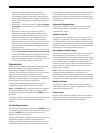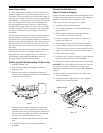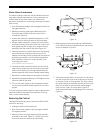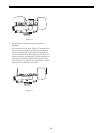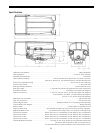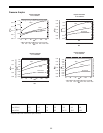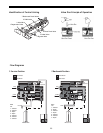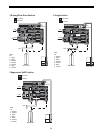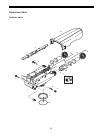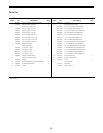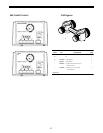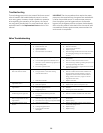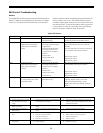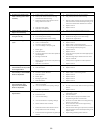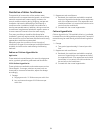
31
Disinfection of Water Conditioners
The materials of construction of the modern water
conditioner will not support bacterial growth, nor will these
materials contaminate a water supply. However, the
normal conditions existing during shipping, storage and
installation indicate the advisability of disinfecting a
conditioner after installation, before the conditioner is
used to treat potable water. In addition, during normal use,
a conditioner may become fouled with organic matter or
in some cases with bacteria from the water supply.
Thus every conditioner should be disinfected after
installation, some will require periodic disinfection during
their normal life, and in a few cases disinfection with every
regeneration would be recommended.
Depending upon the conditions of use, the style of
conditioner, the type of ion exchanger, and the disinfectant
available, a choice can be made among the following
methods.
Sodium or Calcium Hypochlorite
Application
These materials are satisfactory for use with polystyrene
resins, synthetic gel zeolite, greensand and bentonites.
5.25% Sodium Hypochlorite
These solutions are available under trade names such as
Clorox Bleach*. If stronger solutions are used, such as
those sold for commercial laundries, adjust the dosage
accordingly.
1. Dosage
A. Polystyrene resin: 1.2 fluid ounces per cubic foot.
B. Non-resinous exchangers: 0.8 fluid ounce per
cubic foot.
2. Regenerant tank conditioners
A. Backwash the conditioner and add the required
amount of hypochlorite solution to the regenerant
well of the regenerant tank. (The regenerant tank
should have water in it to permit the solution to be
carried into the conditioner.)
B. Proceed with the normal regeneration.
Calcium Hypochlorite
Calcium hypochlorite, 70% available chlorine, is available
in several forms including tablets and granules. These solid
materials may be used directly without dissolving before
use.
1. Dosage
A. Two grains (approximately 0.1 ounce) per cubic
foot.
2. Regenerant tank conditioners
A. Backwash the conditioner and add the required
amount of hypochlorite to the regenerant well of
the regenerant tank. (The regenerant tank should
have water in it to permit the chlorine solution to
be carried into the conditioner.)
B. Proceed with the normal regeneration.



